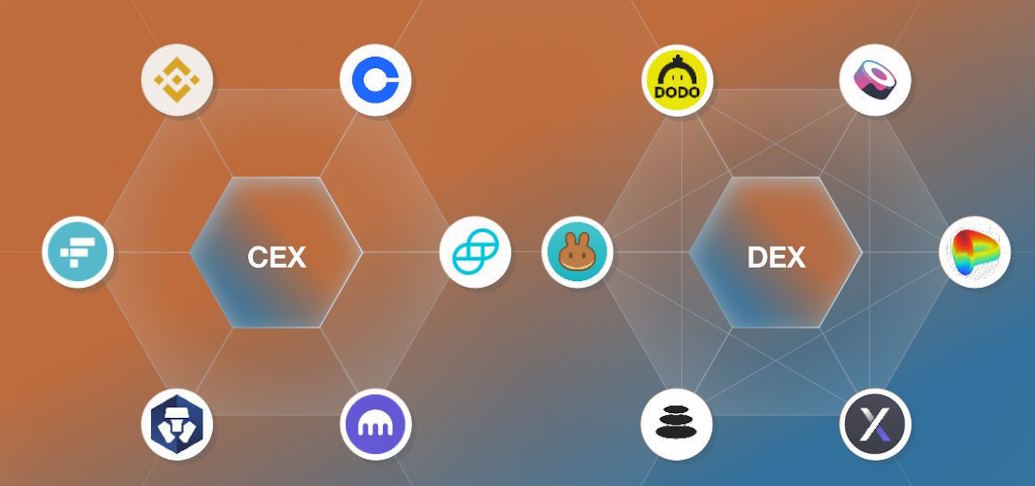The Role of Decentralized Exchanges (DEXs) in Shaping Cryptocurrency Trends
The cryptocurrency landscape has witnessed remarkable growth and transformation, driven by groundbreaking innovations and evolving market dynamics. Amidst this ongoing revolution, decentralized exchanges (DEXs) have emerged as a disruptive force, reshaping the way cryptocurrencies are traded and opening new possibilities for users worldwide.
Understanding Decentralized Exchanges (DEXs)
Definition and core principles of DEXs
Decentralized exchanges, commonly referred to as DEXs, represent a fundamental shift in the way cryptocurrency trading occurs. Unlike centralized exchanges (CEXs), which rely on a trusted intermediary to facilitate transactions, DEXs operate on a decentralized network, leveraging blockchain technology. The core principle of DEXs is to eliminate the need for a central authority and empower users with full control over their funds and trades. By leveraging smart contracts and cryptographic protocols, DEXs enable peer-to-peer transactions directly between users, without the need for a middleman.
Comparison with centralized exchanges (CEXs)
When comparing DEXs to centralized exchanges (CEXs), the differences become apparent. CEXs act as intermediaries, holding user funds and managing the order books. In contrast, DEXs remove the need for trust in a centralized entity by allowing users to trade directly from their wallets, giving them complete ownership and control over their assets. While CEXs generally offer higher trading volumes and a wider range of supported cryptocurrencies, DEXs excel in terms of privacy, security, and transparency.
Advantages and disadvantages of DEXs
Advantages:
- Enhanced privacy: DEXs do not require users to provide personal information, ensuring privacy and protecting user data from potential breaches.
- Improved security: By eliminating the need to deposit funds into a centralized platform, DEXs mitigate the risks associated with hacking or theft of user funds.
- Trustless environment: DEXs operate on trustless networks, allowing users to directly interact and trade with each other without the need for intermediaries.
- Global accessibility: DEXs are accessible to anyone with an internet connection, enabling users from all around the world to participate in cryptocurrency trading.
Disadvantages:
- Lower liquidity: DEXs often face challenges in maintaining high liquidity due to the absence of market makers and limited user participation.
- User experience: Some DEXs can be less user-friendly compared to CEXs, requiring a certain level of technical expertise to navigate and operate effectively.
- Limited trading options: DEXs may have a more restricted selection of tradable assets compared to CEXs, which often list a wider variety of cryptocurrencies and trading pairs.
Regulatory Challenges and Compliance
Regulatory landscape for DEXs
In the ever-evolving world of cryptocurrencies, regulatory frameworks play a crucial role in shaping the operation of decentralized exchanges (DEXs). The regulatory landscape for DEXs varies across different jurisdictions, as authorities grapple with the task of adapting traditional financial regulations to the decentralized nature of these platforms. While some countries have embraced DEXs with supportive regulations, others have adopted a cautious approach or implemented strict measures to mitigate potential risks such as money laundering and illicit activities.
Balancing decentralization with compliance
One of the key challenges for DEXs is striking a balance between their decentralized principles and regulatory compliance. Decentralization is a fundamental pillar of DEXs, ensuring user autonomy and removing the need for intermediaries. However, regulatory compliance necessitates certain measures to prevent illegal activities, protect investors, and maintain market integrity. DEXs face the challenge of implementing compliance measures while preserving their decentralized nature, which can be a delicate and complex task.
Emerging solutions for regulatory challenges
As the regulatory landscape for DEXs continues to evolve, emerging solutions are being developed to address the challenges posed by compliance. Some DEXs are exploring decentralized identity verification protocols to meet regulatory requirements without compromising user privacy. Others are integrating Know Your Customer (KYC) procedures or partnering with third-party compliance providers to ensure regulatory compliance. Additionally, regulatory sandboxes and dialogue between DEX platforms and regulators are becoming more common, allowing for a collaborative approach to address concerns and find mutually beneficial solutions.

The Future of DEXs and Cryptocurrency Trends
Growing adoption of DEXs
Decentralized exchanges (DEXs) are experiencing a significant surge in adoption as more users recognize the benefits they offer. The decentralized nature of DEXs, coupled with enhanced security and privacy features, resonates with individuals seeking greater control over their digital assets. DEXs also provide access to a wide range of tokens and facilitate the seamless swapping of assets without relying on a centralized intermediary. As the crypto community becomes more aware of the advantages offered by DEXs, we can expect to witness a continued growth in their adoption.
Potential impact on centralized exchanges
The rise of DEXs poses a potential challenge to traditional centralized exchanges (CEXs). With their peer-to-peer trading model and elimination of intermediaries, DEXs challenge the dominance of CEXs by offering a more secure and transparent alternative. As DEXs continue to improve in terms of liquidity, user experience, and trading options, it is likely that they will attract a larger portion of cryptocurrency trading volume. This could potentially lead to a shift in market share from centralized exchanges to DEXs, forcing CEXs to adapt their strategies and offerings to remain competitive.



